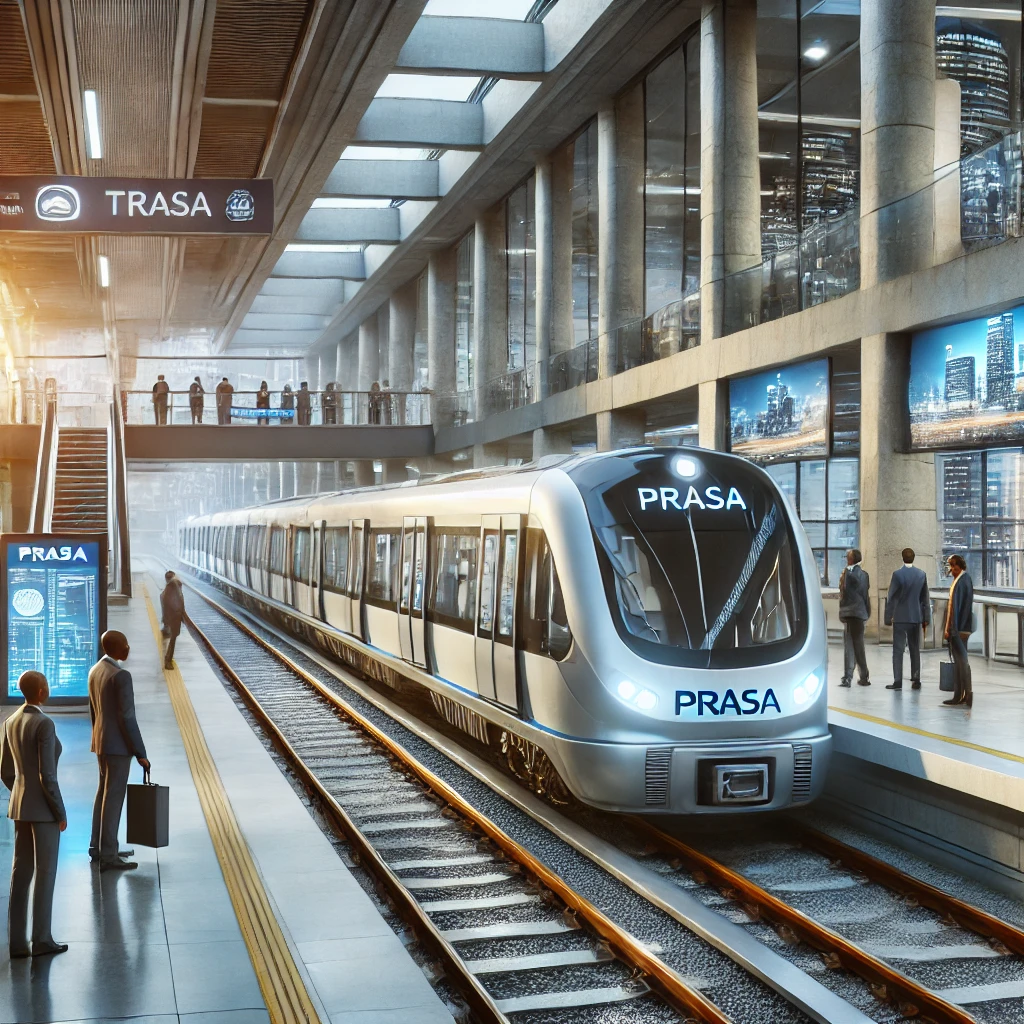SA Unveils 300th Locally-Built Commuter Train in Landmark Rail Revival
The 300 train sets were produced by Gibela Rail Transport Consortium at its cutting-edge manufacturing plant in Nigel, Ekurhuleni, under the Passenger Rail Agency of South Africa (PRASA).

- Country:
- South Africa
In a landmark achievement for South Africa's public transportation sector, the national government has celebrated the delivery of the 300th locally manufactured train set, marking a major milestone in efforts to modernize and revitalize the country's passenger rail services. The trains, affectionately dubbed Isitimela Sabantu, or "The People's Train," symbolize far more than a mode of transport — they embody national pride, economic opportunity, and a blueprint for sustainable infrastructure development.
Locally Built, Globally Competitive: Gibela's Role in Train Manufacturing
The 300 train sets were produced by Gibela Rail Transport Consortium at its cutting-edge manufacturing plant in Nigel, Ekurhuleni, under the Passenger Rail Agency of South Africa (PRASA). The sleek, blue-and-grey X'trapolis Mega trains are not just a leap forward in rail travel comfort and efficiency, but also a testament to the country's growing capability in high-tech manufacturing.
"Each train that leaves the Gibela plant in Nigel carries not only passengers, but also the skills, livelihoods, and aspirations of South Africans who built it," said Minister of Transport Barbara Creecy at the celebratory event in eThekwini, KwaZulu-Natal. The initiative is a key pillar in the government's ongoing campaign to restore rail as a reliable, affordable, and inclusive form of mass transit.
Empowering Local Economies Through Transport Infrastructure
The significance of the event extended beyond transportation. It showcased the government's comprehensive strategy to integrate rail development with economic empowerment and urban renewal. The unveiling of the new train was coupled with the official opening of the Isipingo Mall and the launch of PRASA's Solar Renewable Energy Project.
The Isipingo Mall, located near a key PRASA station, is an anchor project in PRASA's secondary mandate — the development and commercial utilization of properties surrounding rail infrastructure. Covering over 7,259 square meters and hosting 45 shops, public amenities, and 304 parking bays, the mall aims to transform the surrounding area into an economic hub.
During construction, the mall generated around 271 jobs, primarily for local artisans, labourers, and contractors. In its operational phase, it is expected to sustain over 150 permanent positions in retail, facilities management, and community services. "This is a direct investment in people's lives, bringing both jobs and services to the heart of eThekwini," Minister Creecy emphasized.
Renewable Energy and Climate-Conscious Development
As part of efforts to future-proof the rail network, PRASA — through its subsidiary Intersite — is rolling out solar energy systems at stations and maintenance facilities. This Solar Renewable Energy Project aims to reduce PRASA's reliance on the national power grid, enhance reliability during power cuts, and minimize the environmental impact of its operations.
"These systems will not only lower the agency's carbon footprint but will also improve operational resilience," Creecy noted. The renewable energy initiative reflects PRASA's broader vision of a sustainable, integrated, and climate-conscious transport system.
October Transport Month: A Showcase of Inclusive Growth
The event aligned with South Africa's October Transport Month, celebrated under the 2025 theme: "Implementing an integrated, sustainable and safe transport system that promotes inclusive economic growth, job retention and creation, and social development."
Creecy underlined that modernizing the rail fleet and investing in infrastructure must go hand-in-hand with industrial policy and local economic development. "Infrastructure investment must create value here at home — not only through the services it delivers, but through the manufacturing ecosystems it sustains," she said.
A Model for Public-Private Collaboration
This expansive transformation has been made possible through partnerships across all spheres of government and the private sector. Creecy commended the Department of Transport, PRASA, Intersite, developers, municipalities, and communities for ensuring the success of these projects.
"As a government, we recognise that sustainable transport infrastructure is not built in isolation. It requires collaboration across national, provincial, and local levels, and meaningful engagement with business and labour," she said.
Looking Ahead: More Trains, More Energy, More Opportunity
Looking to the future, PRASA plans to continue deploying new trains, expanding its solar infrastructure, and unlocking the full value of its real estate assets. These efforts are intended to bolster the financial sustainability of the agency while enhancing community impact and service delivery.
"With every kilometre of track restored and every train returned to service, we are not only reconnecting cities — we are rebuilding confidence, creating opportunity, and delivering on our promise to make public transport the backbone of inclusive growth," Creecy concluded.
This multifaceted approach — blending innovation, inclusion, and investment — presents a visionary path forward for South Africa's public transportation, one that places communities at the centre of progress.
ALSO READ
-
Rishabh Pant's Comeback: Key to India's Hopes Against South Africa A
-
South Africa Triumphs in T20 Opener Against Pakistan
-
Zachary Porthen Makes Debut as South Africa Reignites the 'Miracle of Brighton' Challenge Against Japan
-
Sankey Prasad Steps Down as CMD of Colliers India and Middle East Operations
-
South Africa's Maize Harvest Booms with 27% Increase









